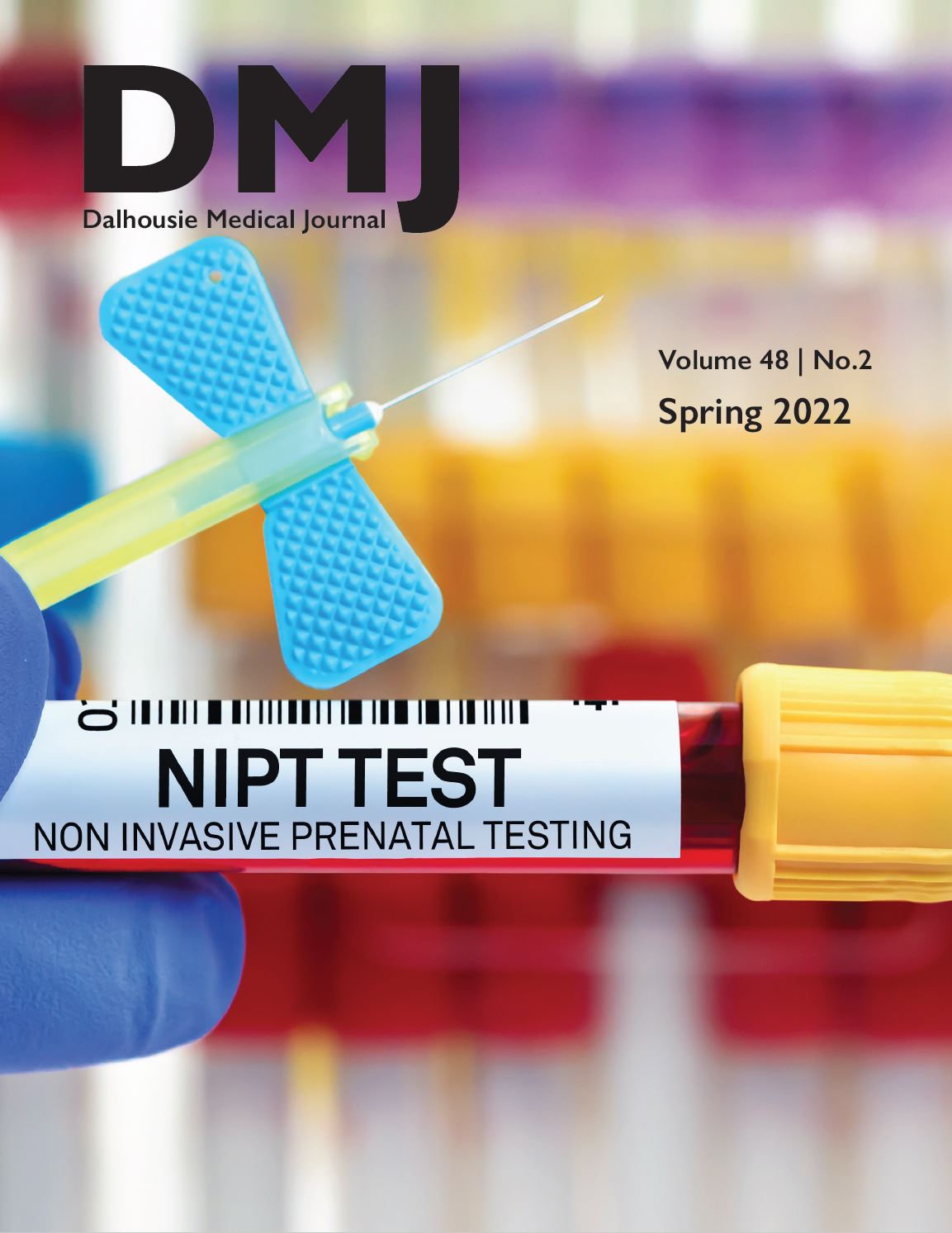Recent medical graduates‘ attitudes towards nutrition education and its role in medical practice
DOI:
https://doi.org/10.15273/dmj.Vol48No2.11471Abstract
The objective of this study was to investigate recent Dalhousie Medical School graduates‘ perceptions of nutrition in three domains: attitudes towards its use in medical practice generally, learned body of knowledge in medical school and residency, and satisfaction with how undergraduate and postgraduate medical education aligned their attitudes and knowledge of nutrition in medicine. Graduates of Dalhousie University‘s undergraduate medical program from 2013 to 2018 were contacted to complete an internet-based questionnaire of 13 five-point Likert scale questions about attitudes, knowledge, and satisfaction with nutrition education in their undergraduate medical studies and medical practice. Responses ranged from one, “strongly disagree” to five, “strongly agree”. Most respondents (90.2%) agreed that ‘nutrition counseling can make a positive difference to patient outcomes‘ and 80.5% agreed that ‘physicians can influence patient behavior related to nutrition‘. However, fewer (61.0%) agreed that ‘physicians play a key role in improving patients‘ nutritional habits.‘ Even fewer participants agreed that nutritional assessment (34.1%) and nutritional counselling (41.5%) should be a routine part of care, regardless of specialty. The mean (standard deviation) overall score of participants with regards to their attitudes about nutrition assessment, counselling, and role in patient health, was 3.60 (0.633). Scores ranged from 1 to 5 with higher score indicating morepositive attitude. Mean overall knowledge and satisfaction scores were 3.76 (0.702) and 2.70 (0.898), respectively. There is a lack of consensus regarding the role of physicians in delivering nutrition care to patients, despite its perceived importance to patient health, requiring further exploration.
Downloads
Published
How to Cite
Issue
Section
License
Authors who publish with this journal agree to the following terms:
- Authors retain copyright and grant the journal right of first publication with the work simultaneously licensed under a Creative Commons Attribution License that allows others to share the work with an acknowledgement of the work's authorship and initial publication in this journal.
- Authors are able to enter into separate, additional contractual arrangements for the non-exclusive distribution of the journal's published version of the work (e.g., post it to an institutional repository or publish it in a book), with an acknowledgement of its initial publication in this journal.
- Authors are permitted and encouraged to post their work online (e.g., in institutional repositories or on their website) prior to and during the submission process, as it can lead to productive exchanges, as well as earlier and greater citation of published work (See The Effect of Open Access).


